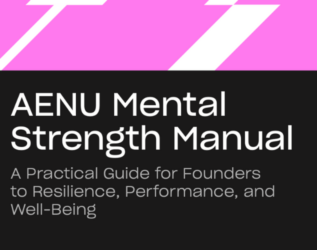The Cost of Burnout: Why Mental Health Is a Venture Issue

Founder well-being isn’t a soft topic. It’s a structural lever for performance.
Startup culture has long rewarded overwork. Founders are celebrated for pushing through exhaustion, sacrificing sleep, skipping holidays, and never switching off. But the numbers tell a different story — one that every investor and operator should take seriously:
- 72% of entrepreneurs report mental health challenges.
In climate tech, that number rises to 63% rating their mental health as “bad” or “very bad.” 
This isn’t an individual failing. It’s a systemic problem. And ignoring it comes at a cost — to founders, teams, and the bottom line.
⸻
Burnout isn’t just personal. It’s operational.
Mental overload doesn’t show up in a pitch deck. But it shows up in other ways:
Missed signals. Team friction. Delayed product launches. High churn. Emotional volatility. Strained decision-making.
- According to research: Startups with burned-out founders are twice as likely to fail
- They raise up to 35% less capital and lose millions in talent turnover
- Founders themselves report sharp drops in clarity, productivity, and motivation 
So why is mental health still treated as a personal responsibility — or worse, a luxury?
What if we built mental resilience into the operating model?
At AENU, we treat mental health as startup infrastructure. Just like cap tables, governance, or product-market fit — it deserves a place in the company-building playbook.
That’s why we support our founders and team members with:
- Subsidized therapy and coaching, tailored for high-pressure leadership
- Founder-only retreats, to reset perspective and reduce decision fatigue
- Regular event invitations and workshops, focused on burnout prevention and long-term clarity
- And our Mental Strength Manual: a no-fluff, practical guide to founder resilience
We don’t wait for burnout. We help prevent it — proactively, respectfully, and without stigma.
A cultural shift is overdue
Mental resilience is not a branding issue. It’s not a “founder wellness” initiative.
It’s about helping people make better decisions under pressure, lead with emotional intelligence, and stay in the game long enough to make a difference.
If we want to fund sustainable companies, we need sustainable founders.
Mental health isn’t a distraction from growth.
It’s a multiplier — for performance, clarity, and long-term leadership.








